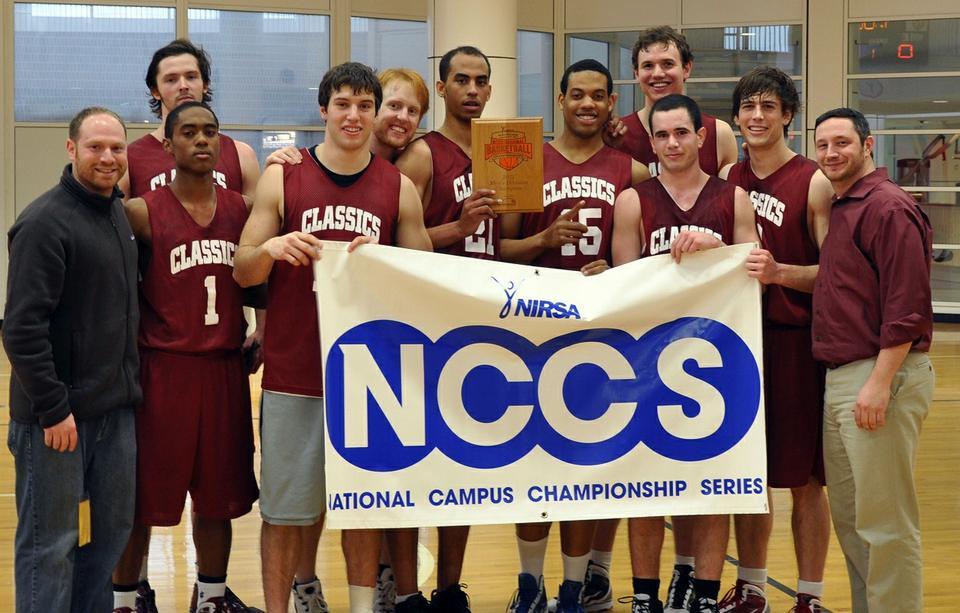
News
Summers Will Not Finish Semester of Teaching as Harvard Investigates Epstein Ties

News
Harvard College Students Report Favoring Divestment from Israel in HUA Survey

News
‘He Should Resign’: Harvard Undergrads Take Hard Line Against Summers Over Epstein Scandal

News
Harvard To Launch New Investigation Into Epstein’s Ties to Summers, Other University Affiliates

News
Harvard Students To Vote on Divestment From Israel in Inaugural HUA Election Survey
A National Tournament of Their Own

Every year around this time, Harvard offers admission to an elite group of students with a wide array of talents. A significant chunk of these incoming students arrive on campus having played varsity sports in high school.
And while Harvard boasts more Division I teams than any school in the country, participation on these teams requires not only great skill, but great time commitment. For many student-athletes who can’t find the time to compete at the varsity level, club sports are the perfect alternative.
“When [some high school athletes] get here, they feel kind of lost because they are not doing anything athletic other than intramurals or going to the MAC occasionally,” said junior and Harvard club basketball captain Ryan Smith, who is also a Crimson magazine editor. “With club, it’s nice to have a team atmosphere, and to play competitive sports without any of the time pressure.”
Smith and the club basketball team enjoyed unprecedented success on the court this year. Last weekend, the squad reached the semifinals of the 2011 NIRSA National Basketball Championship. Harvard finished the tournament with an overall record of 2-2, its losses coming against North Carolina A&T State University and Missouri University, the tourney’s champion and runner-up, respectively.
Still, members of the Crimson squad feel like they could have had a better outing.
“We put a run together,” Smith said. “But we felt bad because we thought we could have won it. We thought that we were best team there.”
The team’s 11 members made the trip to Austin, Texas, for the tournament. The weather conditions in the Lone Star State were somewhat of a consolation prize for the dissatisfied team captain.
“There are definitely worse places to be than Austin as a college student,” Smith said. “It was 85 [degrees] and sunny.”
Perhaps surprisingly, club basketball at Harvard is a relatively new institution. Two years ago, the university did away with junior varsity basketball in response to budget cuts.
Smith suggests that the transition to the club level has actually been beneficial overall because of increased scheduling flexibility. The Crimson would not have been able to compete at nationals were it not for the transition.
But basketball isn’t the only prominent club sport at Harvard—another team is also taking advantage of the school’s opportunities.
The men’s and women’s club tennis teams will be competing this weekend at the USTA National Campus Championship. The Crimson won a New England sectional qualifier in October to become one of the 64 teams that punched a ticket to the tournament in Cary, N.C.
Despite a deep tournament field including the nation’s best teams, the Harvard squad remains optimistic about its chances.
“If we all play our best, I think we could give some of the teams a run for their money,” junior tri-captain Greg Leya said.
The Crimson was placed in the tourney’s Pool G, joining Southern Methodist University, the University of California Irvine, and the “home team,” University of North Carolina at Chapel Hill.
“They’re going to have all of the fans,” junior tri-captain Tarek Austin joked.
For Harvard to overcome the Tar Heels’ home court advantage, it will need to rely on its depth, something that the squad sees as one of its strengths.
“One of the great things about our team is that we’re a very deep team,” Austin said. “There isn’t one powerhouse player that carries the team. All five guys and all five girls are around the same level, so we’re a good, cohesive group.”
In addition to men’s and women’s singles and doubles matches, the Crimson will compete in mixed doubles at the national competition. To prepare, the teams have begun holding joint practices.
“[Mixed doubles] really could be a make-or-break for us,” Leya said.
The trip to North Carolina will be the first time this year that the team has traveled out of New England. Women’s captain Katrina Welch, a four-year veteran of the team, was on the team when it last earned a nationals bid in 2008.
Welch tried out for the varsity tennis team during her freshman year, but didn’t make the squad. But rather than looking at it as a setback, she says the cut allowed her to find her niche at the club level.
“It was the best thing that happened to me because I was able to play on the club team and excel like I wouldn’t have been able to do on varsity,” Welch said. “That’s what is great about club, it opens up possibilities for students to make what they want of it.”
Want to keep up with breaking news? Subscribe to our email newsletter.
